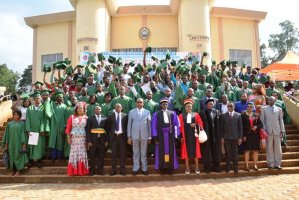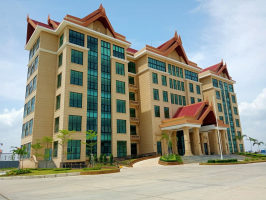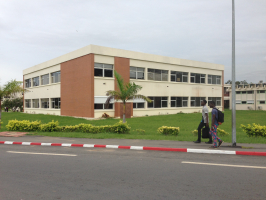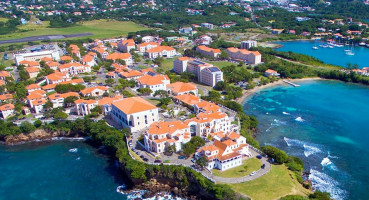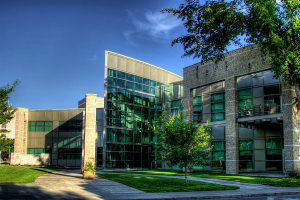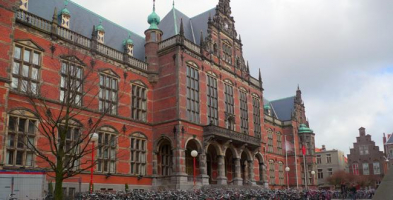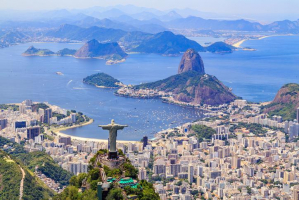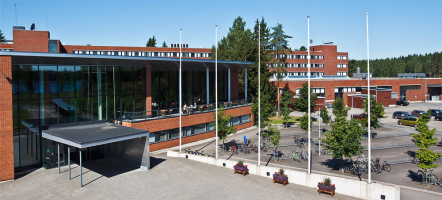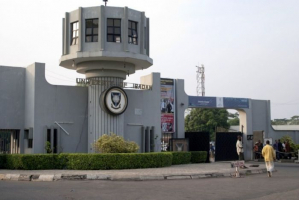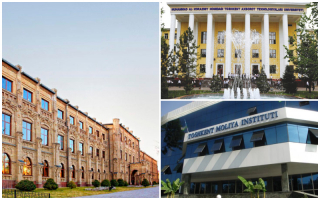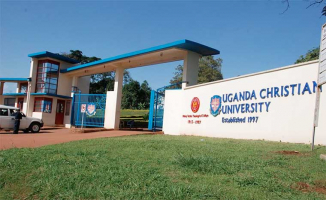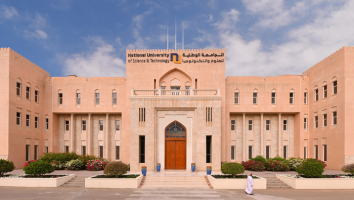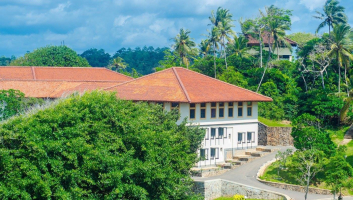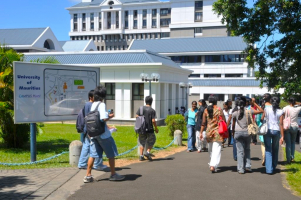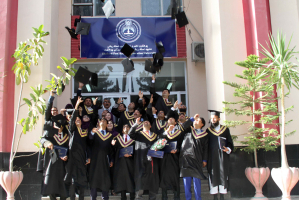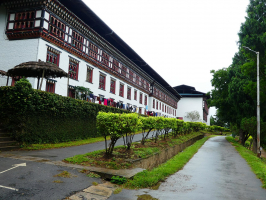Top 7 Best Universities In Iceland
Iceland is a North Atlantic Ocean island country. Because the island features both volcanoes and glaciers, it is known as the Land of Fire and Ice. More ... read more...natural beauties, such as natural ice caves, the Dettifoss Waterfall, the Blue Lagoon, and others, can be found in between. Icelanders also enjoy a great quality of life, since the country ranks among the best in the world in terms of peace, healthcare, internet connectivity, and, most crucially, education. This explains the country's present population of nearly 18000 international students studying for a degree or on an exchange program. Top best universities in Iceland will be complied by Toplist in this article.
-
Háskóli Íslands (University of Iceland) was founded in 1911 and is a non-profit public higher-education institution located in the urban setting of Reykjavik, Capital Region. Háskóli slands (HI/UI) is a large coeducational Icelandic higher education institution that is officially recognized by the Mennta- og menningarmálaráuneyti (Ministry of Education, Science, and Culture of Iceland). It has steadily developed from a tiny government servants' school to a contemporary comprehensive university, with approximately 14,000 students enrolled in twenty-five faculties. In the social sciences, humanities, law, medicine, natural sciences, engineering, and teacher education, teaching and research are carried out. It has a campus in central Reykjavk, centered on Suurgata street, with auxiliary facilities in the surrounding neighborhood and in the countryside.
On June 17, 1911, the Alingi established the University of Iceland, which merged three previous post-secondary institutions: Prestaskólinn, Laeknaskólinn, and Lagaskólinn, which taught theology, medicine, and law, respectively. The first session of the elected assembly of Althingi in 1845 saw the demand for a national Icelandic university. At the time, Icelandic nationalist leaders petitioned Denmark to establish a "national school" to accomplish cultural and material growth while also ensuring that the education received by Icelanders was sufficiently national in nature.
There has been a lot of reorganization in recent years. The institution was split into five different schools in 2008. At the same time, the Iceland University of Education and the University of Iceland combined to form the School of Education. Increased competition from nearby institutions has prompted the university to significantly strengthen its previously thought useless marketing initiatives. In numerous areas of study, Háskóli Íslands (HI/UI) offers courses and programs leading to officially recognized higher education degrees like as pre-bachelor degrees (i.e. certificates, diplomas, associate or foundation degrees), bachelor degrees, master degrees, and doctorate degrees.
This 109-year-old Icelandic university has a strict admission procedure based on students' previous academic records and ratings. With an admittance rate of 80-90 percent, this Icelandic higher education institution is one of the least selective in the country. Students from all around the world are welcome to apply for admission. Students can take advantage of a library, dormitories, sports facilities, financial aid and/or scholarships, study abroad and exchange programs, online courses and distance learning possibilities, as well as administrative services at HI/UI.
The Rector and 10 additional members, including two students and two members authorized by the University Forum, make up the University Council, which is the highest administrative authority within the university. The Rector, faculty heads, and various domestic representatives make up the University Forum. It has no executive powers, but collaborates with the Council on the university's general plan. Deans oversee the five academic schools and their faculties, which have significant power over curricula and day-to-day management.
For the first time in 2011, Times Higher Education included the University of Iceland in its rankings, placing it in the global range of 276-300. It had risen to the 251-275 band on the same list the following year. The university is currently ranked among the top 200 to 250 universities in the world by the Times. Academic Ranking of World Universities (ARWU) ranked it in the 401-500 range globally in 2017.Name: University of Iceland
Acronym: HI/UI
Founded: 1911
Colours: Blue and whiteWebsite: https://www.hi.is/
Country rank: 1
World rank: 726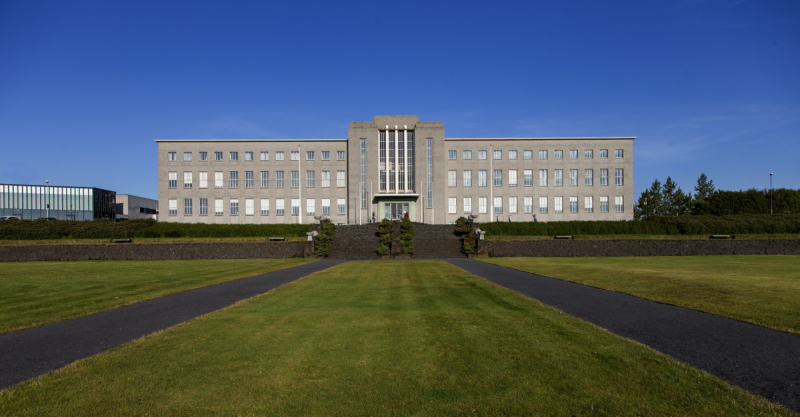
https://www.hi.is/ 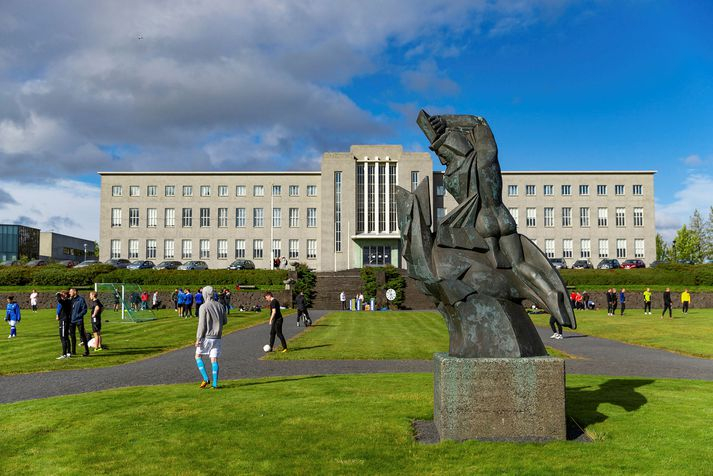
https://www.visir.is/ -
Háskólinn í Reykjavík (Reykjavík University) was founded in 1998 as a non-profit private higher-education institution in the small city of Reykjavík (population range of 50,000-249,999 persons), Capital Region and has the position as one of the best universities in Iceland. Háskólinn í Reykjavík (RU) is a small (enrollment range: 3,000-3,999 students) coeducational Icelandic higher education institution that is officially recognized by the Ministry of Education, Science, and Culture of Iceland.
The institution is divided into two schools, each with seven academic departments. The Department of Law, the Department of Business Administration, the Department of Sport Science, and the Department of Psychology are all part of the School of Social Sciences. The Departments of Computer Science, Engineering, and Applied Engineering are all located inside the School of Technology. The university is a bilingual institution (English and Icelandic). The Commercial College of Iceland, School of Computer Science (TV), which was formed in January 1988 and operated within the Commercial College of Iceland (V) facilities for ten years, is the forerunner of Reykjavík University. The first semester of Reykjavík University began on September 1, 1998, in a new building known as the Reykjavík School of Business. Within the school, television became one of two departments. Because the school's name did not adequately describe the breadth of the school's operations, a name change was unavoidable.
The name was changed to Reykjavik University in January 2000. Reykjavík University founded the School of Law in the autumn of 2002, and in 2005, Reykjavík University amalgamated with the Technical University of Iceland (TH) to form Reykjavík University. The School of Science and Engineering was formed as a result of the merger, and it was constructed partly on the foundation of TH while also adding new engineering specialties.
In a variety of fields of study, Háskólinn í Reykjavík (RU) offers courses and programs leading to officially recognized higher education degrees such as pre-bachelor degrees (i.e. certificates, diplomas, associate or foundation degrees), bachelor degrees, master degrees, and doctorate degrees. This 22-year-old Icelandic higher-education school has a strict admission process based on past academic performance and grades. The admission rate for this Icelandic higher education institution is between 40 and 50 percent, making it a moderately selective university. Applicants from all over the world are welcome to apply. Students at RU have access to a library, sports facilities, study abroad and exchange programs, and administrative services, among other academic and non-academic facilities and services.
Name: Reykjavík University
Acronym: RU
Founded: 1998
Colours: Red and whiteWebsite: https://www.ru.is/
Country rank: 2
World rank: 2655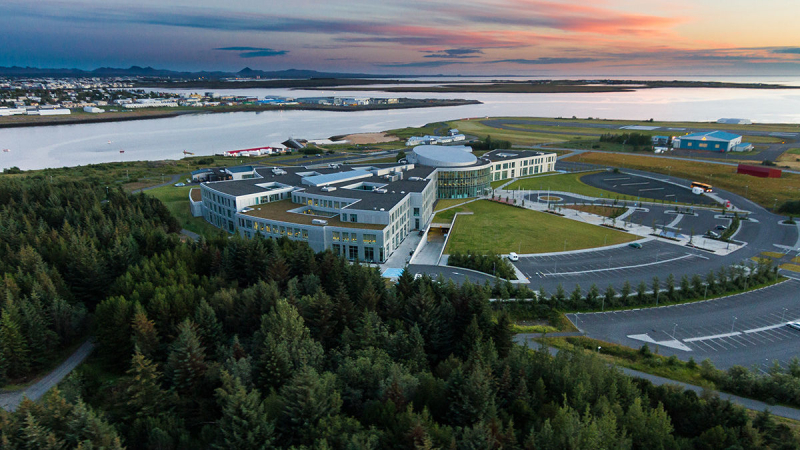
https://www.ru.is/ 
https://www.facebook.com/ -
Háskólinn á Akureyri (University of Akureyri) was founded in 1987 as a non-profit public higher-education institution in the city of Akureyri (population range of 10,000-49,999 inhabitants), in the Northeastern Region. This school is in the top of the best universities in Iceland. Háskólinn á Akureyri (HA/UA), which is officially recognized by Iceland's Ministry of Education, Science, and Culture, is a small coeducational Icelandic higher education institution (enrollment range: 1,000-1,999 students).
It is now a health sciences school, a humanities and social science school, and a business and science school. In the autumn semester of 2014, the university had over 2000 students, around half of them were enrolled through flexible learning, making it the country's largest provider of distant education. The University of Akureyri collaborates with other Icelandic universities to run the University Centre of the Westfjords (Háskólasetur Vestfjara), which offers two master's degrees, one in Coastal and Marine Management and the other in Marine Innovation, at Safjörur. In addition, for the West Nordic Studies and Polar Law Masters programs, the University of Akureyri collaborates with other Nordic universities.
The health sciences and industrial management programs began in 1987, when the university was founded. Haraldur Bessason was the first rector. There were four members of staff and 31 pupils in all. Classrooms were set up in two classrooms at the local sports complex. The library was officially introduced to the school in 1988. The Student Center opened two months after the library was added. In 1989, a batch of ten industrial management students became the first to graduate. The Faculty of Fisheries was founded on January 4, 1990. On February 26, 2000, the first master's degree students received their diplomas. These students studied nursing for a master's degree. On July 1, 2009, after 15 years in office, a new chancellor, Stefán Gunnarsson, took over from Þorsteinn Gunnarsson.
Háskólinn á Akureyri (HA/UA) offers courses and programs in a variety of fields that lead to officially recognized higher education degrees. The entrance policy of this 33-year-old Icelandic higher-education institution is selective. This institution of higher learning has an open admissions policy. Applicants from all over the world are welcome to apply. Students have access to a library, sports facilities, study abroad and exchange programs, online courses and distance learning possibilities, as well as administrative services at HA/UA.
In a variety of fields of study, Háskólinn á Akureyri (HA/UA) offers courses and programs that lead to officially recognized higher education degrees. The entrance policy at this 33-year-old Icelandic higher-education institution is selective. The admissions policy for this higher education school is open. Applicants from outside the United States are welcome to apply. A library, sports facilities, study abroad and exchange programs, online courses and distance learning options, as well as administrative services, are all available to students at HA/UA.
Name: University of Akureyri
Acronym: HA/UA
Founded: 1987
Colours: Red
Website: https://www.unak.is/Country rank: 3
World rank: 5059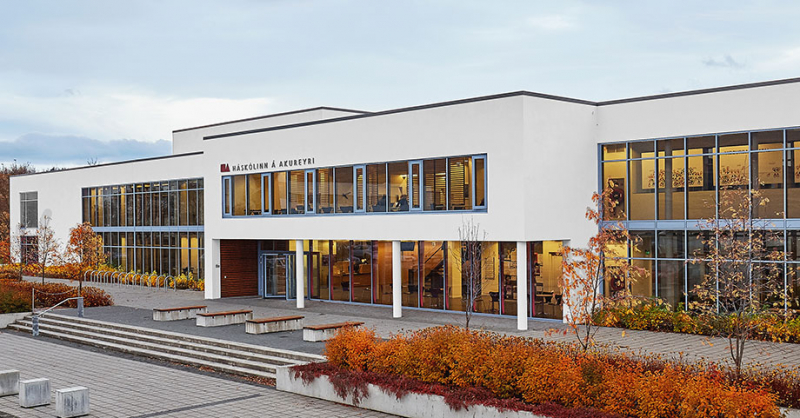
https://www.unak.is/ 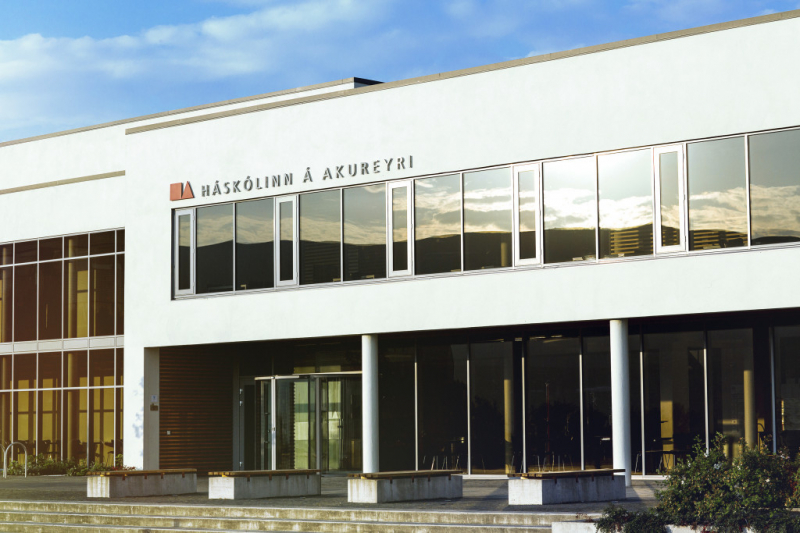
https://www.unak.is/ -
Bifröst University is located 30 kilometers north of Borgarnes, Iceland, in the valley of Norurárdalur. Originally a business school, it now provides bachelor's and master's degrees in law and social sciences, as well as a remedial university preparatory course. In 2011, the university had 573 students enrolled. The institution is surrounded by student and staff housing, and it is one of Iceland's two true "campus universities," along with Hólar University College. Many of the enrolled students, however, are engaged in remote learning programs.
The university began as a secondary school called the Cooperative College (Samvinnuskólinn) in Reykjavik in 1918. The Icelandic cooperative movement (Samband slenskra samvinnufélaga) ran the school, which was originally designed as a training college for cooperative store employees and other movement members. In 1955, the school relocated to its current location in Norurárdalur's picturesque countryside. Lake Hreavatn, the waterfall Glanni, and the volcanic cones Grábrók and Grábrókarfell are all within walking distance of campus. The school initially offered a two-year residential retail management curriculum for pupils aged sixteen to eighteen. The school gradually evolved into a university-level institution offering diploma and bachelor's programs in business during the 1980s and 1990s.
In 1998, a tunnel was completed that cut the drive time from Reykjavik to Bifröst in half, changes in Icelandic society raised demand for higher education, and new legislation allowed universities to charge tuition. Bifröst took advantage of these developments, significantly expanding its curriculum and student numbers, and beginning to charge students tuition in addition to receiving state funding.
The name of the university was changed from Bifröst School of Business to Bifröst University in 2006. The school's rector resigned later that year after scandal, which included claims of financial mismanagement.
Háskólinn á Bifröst (Bifröst) offers a variety of courses and programs that lead to officially recognized higher education degrees such as bachelor's and master's degrees in a variety of fields. This 102-year-old Icelandic university has a strict admission procedure based on students' previous academic records and ratings. The admittance rate for this Icelandic higher education institution is 30-40%, making it a fairly selective university. Students from all around the world are welcome to apply for admission. Students at Bifröst have access to a library, sports facilities, study abroad and exchange programs, online courses and distance learning options, and administrative services, among other academic and non-academic facilities and services.
Name: Bifröst University
Acronym: Bifröst
Founded: 1918
Motto: Small and personal
Colours: Blue
Website: https://www.bifrost.is/Country rank: 4
World rank: 5263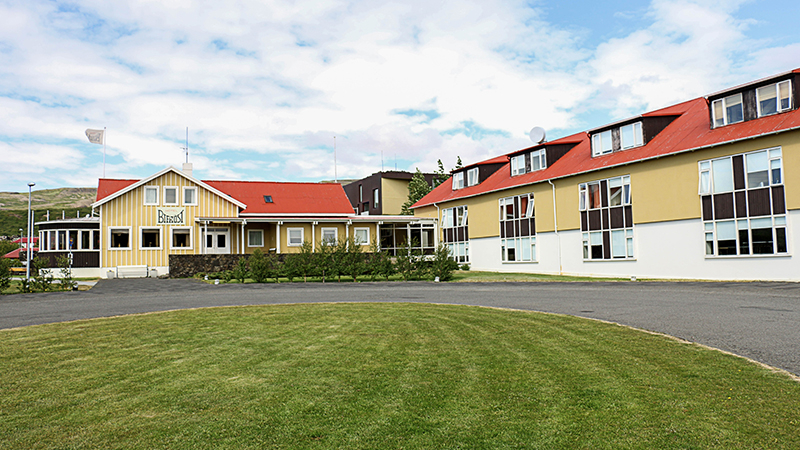
https://www.bifrost.is/ 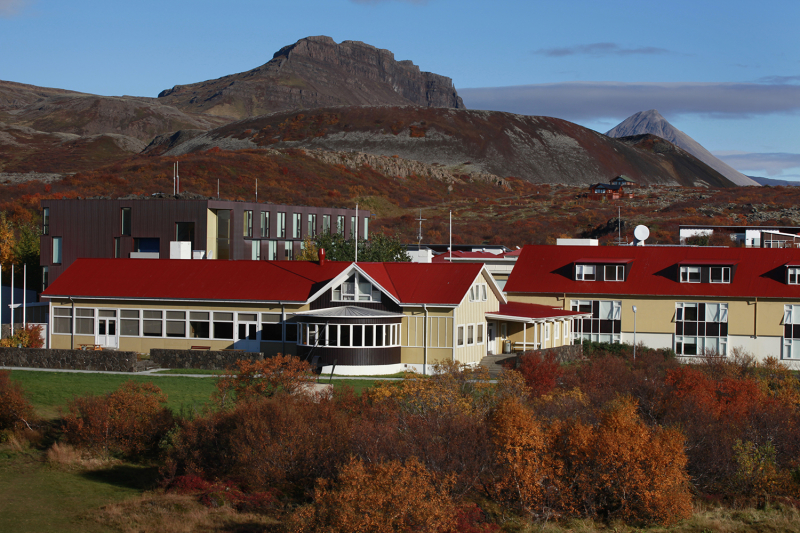
https://www.bifrost.is/ -
Listaháskóli Íslands (Iceland University of the Arts) was founded in 1998 and is a private higher-education institution in Reykjavik (population range of 50,000-249,999 inhabitants), Capital Region. Listaháskóli Íslands (LH) is a very small (enrollment range: 250-499 students) coeducational Icelandic higher education institution that is officially recognized by the Ministry of Education, Science, and Culture of Iceland. This is an arts and cultural university in Iceland, as well as the country's center for higher art education. The Iceland Academy of the Arts is divided into seven departments, each of which offers bachelor's and master's degree programs. Department of Visual Arts, Design, and Architecture, Art Education Department, Music Department, Performing Arts Department, and Film Department are the departments involved. On September 21, 1998, the Academy of Fine Arts was established. In the fall of 1999, classes began. Fra Björk Ingvarsdóttir is the rector.
Listaháskóli Íslands (LH) provides courses and programs that lead to officially recognized higher education degrees, such as bachelor degrees, in a variety of fields. This 22-year-old Icelandic higher-education institution has a strict admissions strategy based on entrance exams. LH also offers students a library, study abroad and exchange programs, as well as administrative services, among other academic and non-academic facilities and services.Name: Listaháskóli Íslands
Acronym: LHÍ
Founded: 1998Website: https://www.lhi.is/
Country rank: 5
World rank: 5974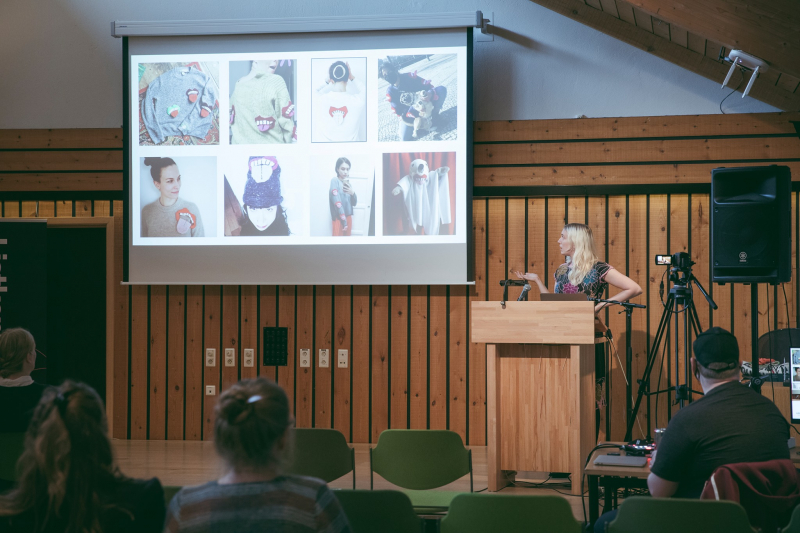
https://www.facebook.com/ 
https://www.facebook.com/ -
Agricultural University of Iceland, founded in 2005, is a non-profit public higher-education school located in the rural environment of Hvanneyri (population range of less than 2,500 residents), Western Region. The university's main campus is at Hvanneyri, near Borgarnes, Iceland, although it also has research stations in Reykjavík, Árnessýsla and Eyjafjarðarsýsla. This university also has a campus in Reykjavik. Agricultural University of Iceland (LBHI) is a relatively tiny (uniRank enrollment range: under-250 students) coeducational Icelandic higher education institution that is officially recognized by the Ministry of Education, Science, and Culture of Iceland.
The Agricultural University of Iceland (LBHI) offers courses and programs in a variety of fields that lead to officially recognized higher education degrees. This Icelandic higher-education school, which is 15 years old, has a selective admission policy based on students' previous academic records and grades. With an admittance rate of 80-90 percent, this Icelandic higher education institution is one of the least selective in the country. Students from all around the world are welcome to apply for admission. Students can use LBHI's library, sports facilities, study abroad and exchange programs, online courses and distance learning options, and administrative services, among other academic and non-academic facilities and services.
Name: Landbúnaðarháskóli Íslands
Acronym: LBHI
Founded: 2005 Origins date back to 1889Website: https://www.lbhi.is/
Country rank: 6
World rank: 7869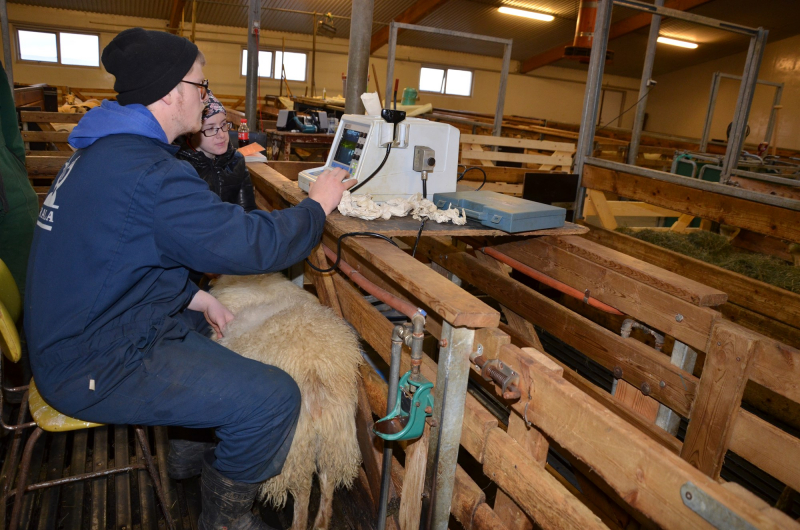
https://study.iceland.is/ 
https://study.iceland.is/ -
Háskólinn á Hólum (Hólar University College), founded in 2007, is a non-profit public higher-education institution located in the rural environment of Sauðárkrókur (population range of 2,500-9,999), Northwestern Region. A branch campus of this university may be found in Akureyri. Háskólinn á Hólum is a small (enrollment range: 250-499 students) coeducational Icelandic higher education institution that is officially recognized by the Ministry of Education, Science, and Culture of Iceland.
Schools and education have a long history in Hólar, Hjaltadalur. The cathedral school of Bishop Jón Ögmundsson was created in 1106, and following the Reformation in 1550, it was turned to a Latin school, which lasted until 1801. The agricultural school at Hólar was founded in 1882, and Hólar University College is descended from that institution. The Hólar school has evolved from a traditional agricultural school to a modern university-level institution during the last 15 years.
In a variety of fields of study, Háskólinn á Hólum offers courses and programs leading to officially recognized higher education degrees such as pre-bachelor degrees (i.e. certificates, diplomas, associate or foundation degrees), bachelor degrees, and master degrees. This 13-year-old Icelandic higher-education school has a stringent admission process based on entrance exams and previous academic performance and grades. Students can take advantage of a library, online courses, and distance learning options, as well as administrative services, at Háskólinn á Hólum.Name: Hólar University College
Founded: 2007 Origins date back to 1106
Colours: Maroon and goldWebsite: https://www.holar.is/
Country rank: 7
World rank: 7947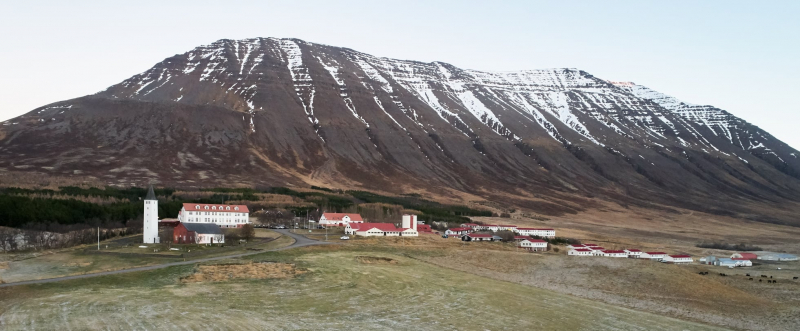
https://www.facebook.com/ 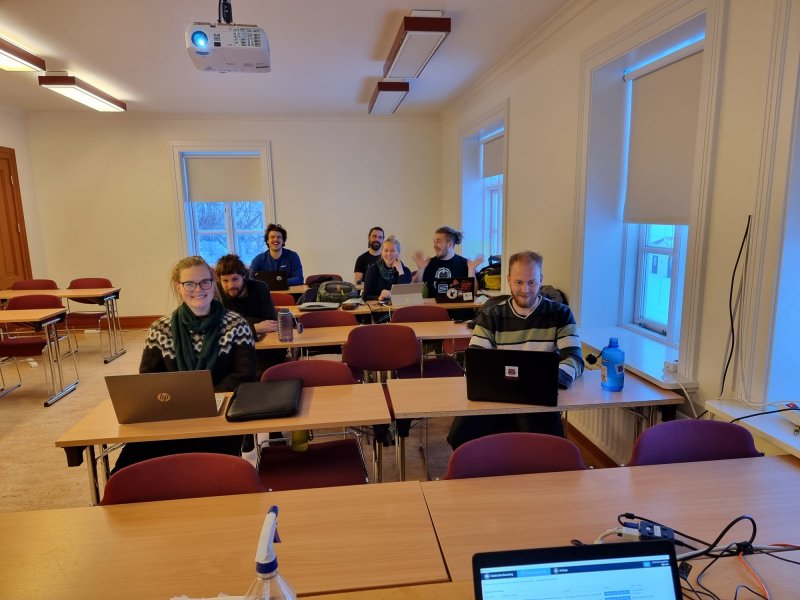
https://www.facebook.com/










